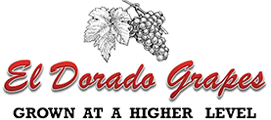Smoke Exposure Resources by UCD Viticulture and Enology Department
The UC Davis Department of Viticulture and Enology would like to provide as much useful information as possible about the potential risk of smoke impact, from recent events on the West Coast, to grape growers and winemakers. To access the information go to: https://wineserver.ucdavis.edu/wildfire-and-smoke-exposure-resources
How smoke compounds interact with grapes in the vineyard and the potential risks for smoke damaged grapes and their effects on wine quality are not well understood. Laboratory analysis of smoke exposed grapes can reveal useful information, but often such analysis alone is insufficient to reliably predict the risk of smoke affected wines. Consequently, researchers recommend the use of laboratory analysis and sensory analysis of wine made from a small-scale fermentation of smoke exposed grapes.
Fermenting a grape field sample is one of the best tools currently available to predict smoke exposure markers (both free and bound volatile phenols) that may be present in a wine post-fermentation. A winemaker or grape grower can use the finished small-scale fermentation to evaluate the presence of off-aromas and ashy flavors (through sensory evaluation) and should also submit a wine sample to a certified laboratory for volatile phenol and glycoside analysis to understand the potential risk of smoke damage.
Resource Links:
1) The West Coast Smoke Exposure Task Force Grape Sampling protocol: WCSETF Grape Sampling Protocol
2) The WCSETF Small-Scale Fermentation Protocol: WCSETF Small-Scale Fermentation Protocol
3) A Video of Dr. Anita Oberholster (UC Cooperative Extension Specialist in Enology) processing 10 lbs. of grapes (~3.3L of juice) through the Small-Scale Fermentation Protocol, explaining the process step-by-step (How to do small-scale fermentations for the evaluation of grape smoke exposure risk).
4) A Frequently Asked Questions (FAQ) sheet that will be updated on a regular basis: Frequently Asked Questions (FAQ) sheet
If you have questions about any portion of the above information, please email klblock@ucdavis.edu
